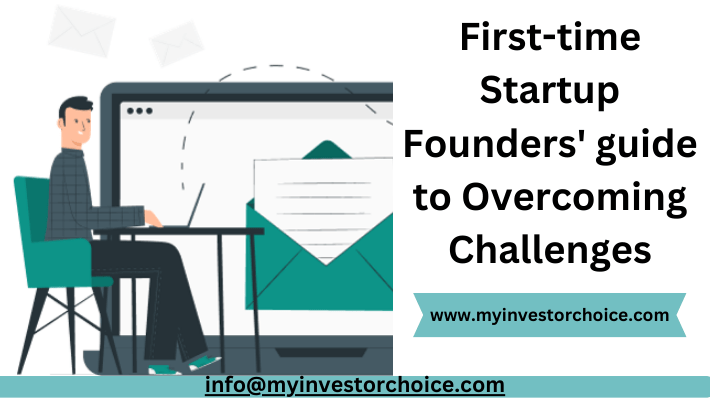 First-Time Startup Founders’ Guide To Overcoming Challenges
First-Time Startup Founders’ Guide To Overcoming Challenges
Entrepreneurship Can Be Exhilarating, Yet Daunting, Especially For First-Time Founders. From developing the right business model to finding the right team and securing financial support, the hurdles may seem insurmountable.
This article explores the challenges new startup founders face and offers practical solutions.
Understanding a startup’s target market is crucial to its success. Entrepreneurs often struggle to identify and comprehend their potential customers’ needs, behaviours, and demographics.
Study Of The Market
Data about customers can be collected through market research. It helps identify market trends, understand consumer behaviour, and predict future trends. For a more holistic perspective, consider industry reports, surveys, and social media analytics.
Analyzing Customer Segments
After collecting data, segment your customers. You can tailor product/service offerings and marketing strategies by categorizing your audience based on factors like age, location, and preferences. The personalization of this approach can increase customer loyalty and engagement.
A Process Of Iteration And Validation
You must reassess your market understanding constantly after launching your product/service. Keeping your offering relevant and competitive requires soliciting customer feedback and being open to iterating based on their feedback.
Founders’ Guide to Building and Leading Teams
You must also select the right individuals to realize your vision. In this process, the choices you make can greatly impact your startup’s future.
Achieving Employee Retention
The retention of your talent is as important as building your team. By providing competitive salaries, clear career progression paths, and opportunities for professional growth, you can ensure your employees’ satisfaction and loyalty.
Funding Startups: The Challenge for Startup Founders
A founder’s greatest challenge is finding investors willing to support their venture.
Creating A Solid Business Plan
A startup’s potential must be demonstrated to investors. Describe your market analysis, financial projections, and growth strategies.
The Networking And Pitching Process
Finding potential investors requires networking. Attend industry events, utilize online platforms, and consider joining startup incubators. Your startup’s value proposition and potential return on investment should be clearly articulated during your pitch.
The Difference Between Crowdfunding And Bootstrapping
Consider crowdfunding or bootstrapping if traditional investment avenues are not working for you. You will need to devote a lot of time and effort to these methods, but they will allow you to maintain greater control over your venture.
Startup Founders and the Importance of Insurance
There is one aspect of startup success that is often overlooked: insurance. The plan serves as a safety net, protecting the company and its founders from unforeseen circumstances.
Insurance Coverage For Life
Founders of startups are particularly in need of life insurance. Survivors and the company may benefit financially from life insurance if a founder dies. Feel free to compare online quotes if you have not yet incorporated life insurance into your insurance plan.
Insuring Businesses
A business insurance policy covering liability, property, and workers’ compensation is also essential. A startup liability policy can protect you from lawsuits, accidents, or damages.
The Legal and Regulatory Obstacles Startup Founders Face
Laws and regulations can often be confusing for entrepreneurs. If not followed, hefty penalties will be applied and the business may even be dissolved.
An Overview Of The Legal System
Your startup’s legal structure has an important impact on liability, taxation, and regulatory obligations. Whether you choose a sole proprietorship, partnership, corporation, or limited liability company, you should consult with a legal advisor.
Property Rights
You should place a high priority on protecting the intellectual property (IP) of your startup. The use of trademarks, copyrights, patents, and trade secrets can give your business a competitive edge and protect it against infringement.
Achieving Compliance
Maintain compliance with industry-specific regulations and ensure your startup remains compliant. The topics covered may include privacy, environmental guidelines, labour laws, and others.
Final Thoughts
As a first-time startup founder, you are likely to face challenges that are both challenging and rewarding. From understanding your market to building a team, obtaining funding, navigating legal hurdles, and learning from failures, each hurdle offers growth opportunities. It is important to ensure that your company and its members are adequately insured, particularly with life insurance. By acquiring these insights, you will be better equipped to navigate your startup journey successfully. I hope that your venture will not only survive but also thrive in this dynamic business environment

 Our Samples
Our Samples  Support
Support 

 First-Time Startup Founders’ Guide To Overcoming Challenges
First-Time Startup Founders’ Guide To Overcoming Challenges



